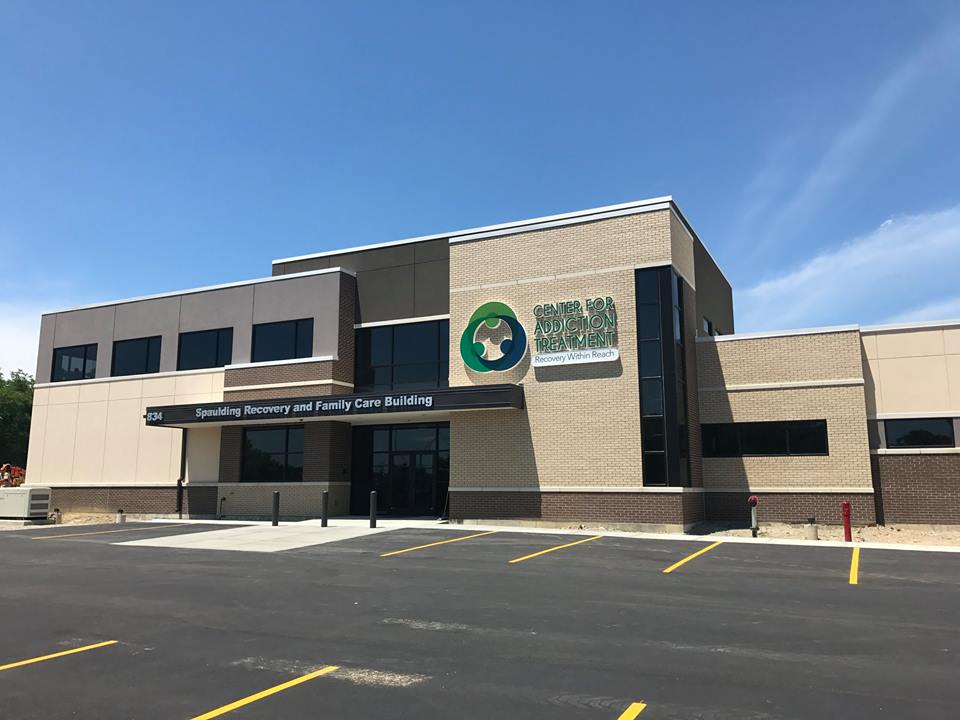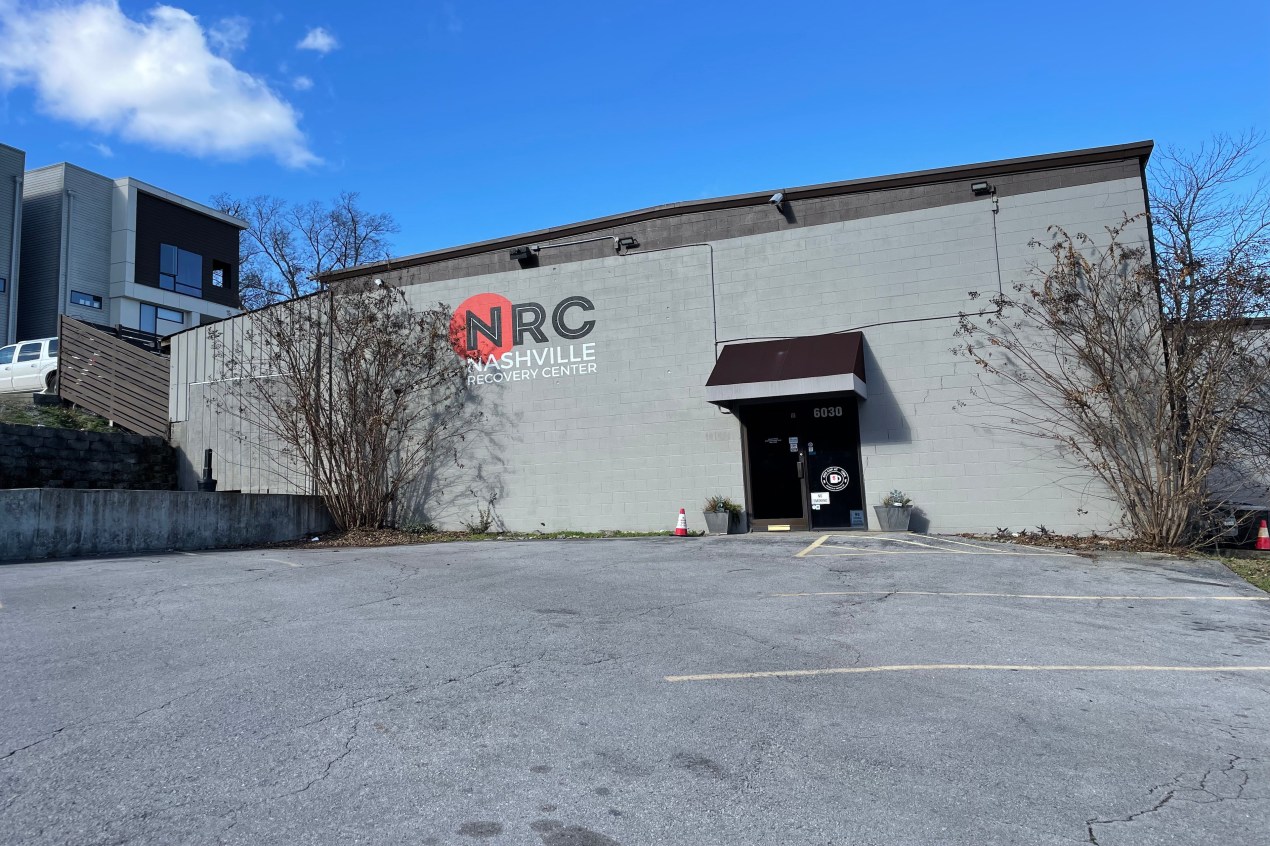Discover Effective Treatments at an Accredited Addiction Treatment Center
Wiki Article
Navigating the Journey of Detoxification in the Comprehensive Addiction Treatment Program
Getting started on the path of detoxification within the framework of a thorough dependency therapy program is a crucial phase in the trip towards recovery. The process of detoxing holds a substantial function in breaking the physical dependancy on compounds and preparing the individual for the succeeding stages of therapy. Nevertheless, navigating via cleansing is not just an issue of physical cleansing; it requires an intricate interaction of psychological, psychological, and social aspects that need careful consideration and support. As individuals come to grips with the obstacles of withdrawal signs and symptoms and the uncertainties that exist ahead, having a structured plan and a durable support system in position ends up being vital. In this conversation, we will certainly check out the diverse elements of detoxing within the thorough dependency treatment program and dropped light on the critical parts that form this transformative journey in the direction of healing.Value of Detoxing in Recuperation

Detoxing sets the foundation for the rest of the dependency therapy program by preparing the individual for more treatment and therapy. By cleaning the body of compounds that have actually been clouding judgment and affecting habits, detoxification makes it possible for clients to approach their healing with a clearer mind and more powerful focus.
Moreover, cleansing helps in managing the potentially extreme withdrawal signs that may emerge when drug or alcohol usage is quit. Physician closely monitor people throughout detox to ensure their security and supply necessary assistance. Via this process, individuals can begin their trip in the direction of soberness with a maintained physical and psychological state, raising the likelihood of an effective recovery.
Comprehending the Detox Refine
Detoxification, an essential element of dependency treatment programs, entails a structured procedure intended at securely eliminating hazardous materials from the body to help with an effective recuperation journey. The detoxification procedure typically begins with an evaluation to assess the individual's substance usage background, physical health, and psychological health. This analysis helps medical care professionals establish one of the most proper detoxification plan customized to the individual's requirements.Throughout detox, the body undergoes withdrawal as it adjusts to the absence of the material. Withdrawal signs vary depending on the sort of compound utilized, the duration of use, and specific elements. Medical guidance during detox is important to manage withdrawal signs and symptoms and make certain the individual's security and convenience.

Taking Care Of Withdrawal Symptoms

Medicines may be used to relieve specific withdrawal signs and symptoms and lower discomfort. Medicines like methadone or buprenorphine can assist take care of opioid withdrawal signs, while benzodiazepines might be made use of for alcohol withdrawal. It is important for doctor to very carefully keep an eye on the individual's reaction to these medicines to guarantee their security and effectiveness.
Along with medicinal treatments, helpful treatments such as therapy, peer assistance groups, and holistic techniques like mindfulness meditation or yoga can help people deal with the psychological and psychological challenges of withdrawal. By addressing withdrawal signs and symptoms adequately, healthcare companies can improve the detoxification experience and assistance people on their trip to healing.

Support Equipments During Detoxification
Support group play an essential function in supplying social and emotional assistance to people undergoing cleansing in dependency treatment programs. During the detoxification procedure, people usually experience a series of emotional and physical withdrawal signs, making this phase difficult - Addiction Treatment Center. Having a solid support group in place can considerably affect the person's ability to browse through detoxification successfullyFamily members, friends, support system, and health care professionals are important parts of the support system. Family good friends and participants can use encouragement, understanding, and a feeling of belonging throughout this challenging time. go to my site Support system give a system for people to get in touch with others who are experiencing similar experiences, supplying a feeling of area and shared understanding. Medical care experts, consisting of doctors, counselors, and specialists, play a vital duty in keeping track of the person's progress, offering clinical support, and using support throughout the detox procedure.
Looking Ahead: Life After Detoxification
Having effectively finished the detoxing stage, people in addiction treatment programs currently focus on getting ready for the obstacles and opportunities that lie ahead in their journey towards healing. Life after detox marks an essential shift duration where individuals have to remain to improve the development made during detoxification to keep their sobriety. It is necessary for individuals to acknowledge that the journey towards recovery is continuous and calls for commitment, commitment, and a willingness to welcome change.One trick element recommended you read of life after detoxification is the development of dealing systems to take care of triggers and food cravings that might develop. This may entail finding out brand-new abilities, such as mindfulness methods, cognitive-behavioral methods, and anxiety management approaches, to browse challenging circumstances without turning to compound usage. Furthermore, people are motivated to proactively participate in continuous therapy, assistance teams, and aftercare programs to enhance their assistance network and receive guidance as they navigate the intricacies of life post-detox.
Conclusion
Understanding the detox procedure and handling withdrawal symptoms are necessary steps towards healing. It is crucial to recognize the significance of detox in the process of getting over dependency and moving in the direction of a life of sobriety.Clinical guidance throughout detoxification is critical to take care of withdrawal symptoms go to this website and make certain the person's safety and security and comfort.
By understanding the detox process and its importance in damaging the cycle of addiction, people can begin on a course towards lasting recuperation.
During the detox process, individuals commonly experience an array of psychological and physical withdrawal signs and symptoms, making this stage challenging. Medical care professionals, including medical professionals, counselors, and specialists, play a critical function in keeping track of the individual's progression, giving medical support, and using support throughout the detoxification process.
Life after detox marks an important change duration where individuals have to proceed to develop on the progress made during detoxification to maintain their sobriety.
Report this wiki page